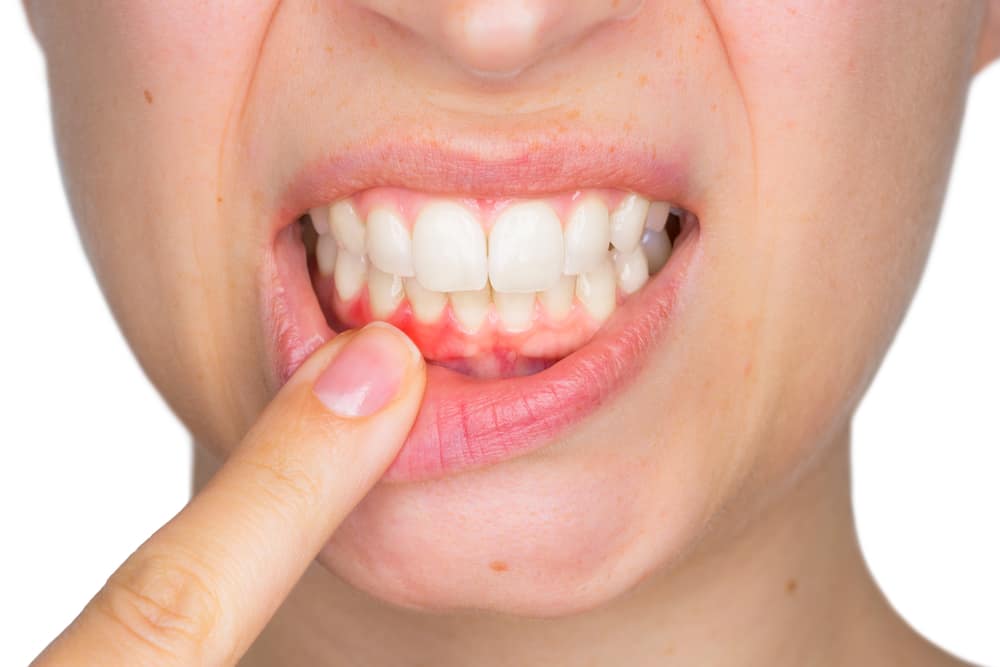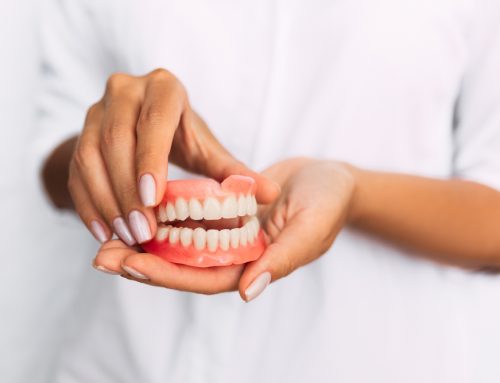
Red, swollen gums are an extremely common symptom of a deeper underlying cause. Most likely, you have gingivitis, gum disease, or even periodontitis. All of these stem from one tiny issue: bacteria and plaque buildup. But, that tiny place where the plaque begins to grow can cause exponentially more damage than its tiny little self belies.
If you’re noticing red, swollen gums, especially after brushing or flossing your teeth, then you should visit your Keller, TX dentist.
Gums Swollen Between Teeth
Have you noticed that the gums between your teeth seem red, swollen, feel pain, or even bleed? If you’re gums are swollen between the teeth, you, my friend have gingivitis.
Why is the gum between my teeth swollen?
Gingivitis is the darker, more vibrant red color found between swollen, tender gums that tend to bleed when you brush your teeth or bite into something hard such as an apple. It is caused by improper dental hygiene and the build up of bacteria in the mouth that likes to hide between the teeth where it grows and inflames the gum tissue. As it progresses, it can cause painful, bleeding, and even receding gums.
How to treat swollen gums between teeth
In order to treat swollen gums, you need to visit the dentist for a dental cleaning and have the bacteria, plaque, and tartar removed and completely cleaned. Afterwards, you will need to use proper oral healthcare while they heal.
Symptoms Connected to Red and Swollen Gums
- changes in the way teeth fit together on biting, or in the fit of partial dentures
- formation of deep pockets between teeth and gums
- gums that bleed during and after toothbrushing
- loose or shifting teeth
- persistent bad breath or bad taste in the mouth
- receding gums
- red, swollen, or tender gums
7 Tips to Prevent Sore, Swollen, and Bleeding Gums
- Brush your teeth at least twice each day.Make sure you follow proper brushing technique. If you’re not sure what to do, ask your dentist or dental hygienist for a quick lesson at your next appointment.
- Floss daily. It doesn’t take more than a few minutes, but flossing may be the most important thing you can do to prevent gum problems now and in the future.
- Rinse with mouthwash daily.An antiseptic mouthwash kills bacteria that cause gum disease.
- Eat a well-balanced diet. A balanced diet, including plenty of vitamin C and calcium, may minimize the likelihood you’ll have gum problems.
- Drink plenty of water.Drinking water, especially after eating, can help wash food off your teeth and make it less likely that bacteria will form gum-damaging plaque.
- Say no to tobacco. If you smoke cigarettes or use other tobacco products, try to quit.
- Be cautious about extremely hot or cold foods and drinks.When you have gum problems, you may find you’re more comfortable having lukewarm or cool foods and beverages.
- Relax. Being stressed out raises levels of the stress hormone cortisol, increasing the likelihood of inflammation throughout your body, including in your gums.



